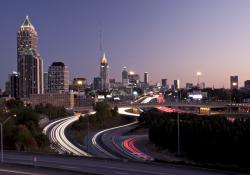The House of Commons Transport Committee’s report on MaaS suggested that increased road congestion and poorer air quality – as well as ‘social and digital exclusion’ – could be the unwanted outcomes of the widespread adoption of MaaS schemes.
“Early research and piloting of MaaS should focus not only on maximising the potential benefits but also on mitigating potential negative effects that could arise,” the MPs on the committee said in their report.
They added: “MaaS should be tested under as wide a variety of conditions as possible if those in local and central government considering MaaS or who are responsible for designing policies and commissioning schemes are to understand and avoid these potentially costly unintended consequences.”
The report also calls on the UK
The DfT should “help to support a much more varied ‘test and learn’ approach to the implementation of MaaS”, it adds, collecting data on a diverse range of MaaS projects and “sharing best practice between local and regional authorities and MaaS platform providers”.
The government should also examine “what steps it needs to take to ensure there is fair market competition and that users’ financial interests are protected”.
Paul Campion, CEO of
Mobility as a Service (8356 MaaS) could lead to ‘unintended negative consequences’, according to influential figures in the UK parliament.





